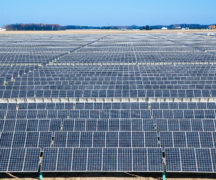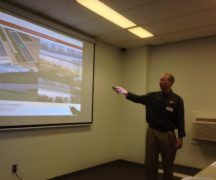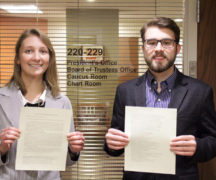After moving back to Bowling Green three years ago, we finally achieved our long-time dream of having a home that could support itself with clean electricity as close to net zero as possible.
After years of witnessing the devastation of the fracking industry in Southeast Ohio and working to counteract the harms, including the opposition of the Nexus and Rover fracked gas pipelines and compressor stations, we chose Bowling Green as a safe place to “practice what we preached,” and get off the fossil fuels as much as possible, relying upon the city’s reputation as a clean energy champion.
Now that rooftop solar and batteries and geothermal technologies are refined and the costs have come down, the opportunity we waited for finally came, and we invested our near fossil-fuel free home by taking out the gas dryer and furnace thereby using as much clean power from the rooftop solar as we could. Our electricity costs will remain the same, but our gas cost has dramatically reduced. We would not have made the investment, nor would we have moved to BG to begin with, had we known we would be faced with a penalty for our rooftop solar installation.
No sooner had we switched from gas to electric, we received a letter from BG Municipal Utilities telling us our contribution of clean energy to our neighbors would be taxed because of “unavoidable grid costs,” and we were told BG had too much electricity. This is a direct result of the 50-year take-or-pay contract entered into with other municipalities that are a part of American Municipal Power (AMP).
The original messaging was confusing if not misleading to accuse local rooftop solar providers of not paying their fair share and costing other rate payers, which is a falsehood. Over the past six months, we have provided scientific research papers and case examples of how individual rooftop solar installations are often undervalued for their true contribution to local clean energy at zero capital cost to other ratepayers. By penalizing individual rooftop solar providers, Bowling Green appears to favor utility-scale solar that can pass capital costs along in the market rates to ratepayers.
Similar policies have been enacted by other municipalities that signed the financially disastrous AMP contract with Prairie State, obligating ratepayers to not only pay capital costs, but the huge amount of debt servicing required by the coal-fired power plant, a major emitter of harmful pollutants.
Until Bowling Green acknowledges the problems caused by AMP and Prairie State, they will blame rooftop solar and not focus on real solutions. AMP needs to be accountable for the high costs to BG ratepayers for not only Prairie State, but for the hydro-electric contracts that are also costing us higher electrical rates. AMP’s poor decisions resulting in higher rates need to be acknowledged. The real problem is not going to go away.
The new policy to charge extra for rooftop solar will slow if not stop individual investments in solar in the city, but it will not reduce the already high rates caused by poor decisions by AMP, subscribed to by BG and others, without oversight or accountability to ratepayers for such decisions, including the most recent one to penalize individual investment in solar by city residents.
It will take everyone in Bowling Green to get involved in these poor decisions and policies if we are to have a hope for energy democracy and fairness to ratepayers in the city.
Leatra Harper & Steven Jansto
Bowling Green




